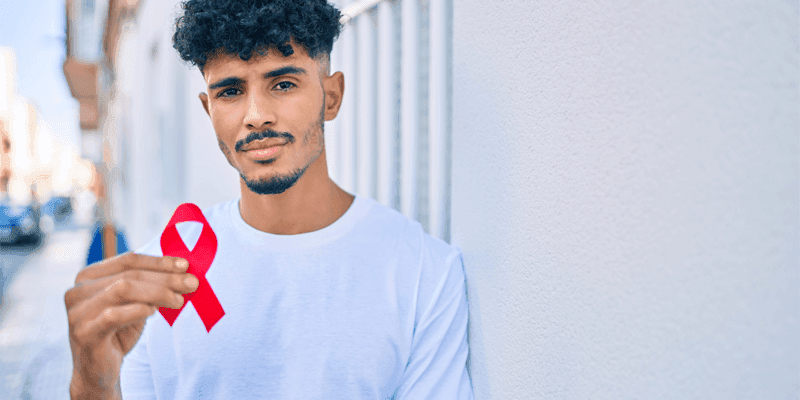Sexually Transmitted Diseases: Types, Symptoms, Treatment
In This Article
Sexually Transmitted Diseases: Types, Symptoms, Treatment
Sreemoyee
Updated on February 01, 2024
Medically verified by Dr. Arya
Fact checked by Dr. Sharon

Wellness
7 min read
It’s time to deal with certain conditions that affect many of us but aren't always easy to talk about: Sexually Transmitted Diseases (STDs). Care to know more about them, the types, signs and treating methods? Mykare Health is here to unravel the mysteries surrounding STDs. From the various types and their symptoms to treatments, ways of transmission, and how to prevent them.
So, get ready to equip yourself with valuable knowledge about staying safe and healthy in the world of intimacy. And seek pleasure without any worry.
What Are STDs?
Sexually Transmitted Diseases, as the name suggests, are infections passed from one person to another through sexual contact. They can affect anyone, regardless of age, gender, or sexual orientation. The key to managing STDs is early detection and timely treatment.
Common Types of STDs
Let's get to know some common STDs and their symptoms:
| STD | Symptoms |
|---|---|
| Chlamydia | Painful urination, abnormal discharge, lower abdominal pain. |
| Gonorrhea | Similar to chlamydia but can also cause sore throat, pain, and swelling in genitals. |
| Syphilis | Sores or ulcers, rashes, fever, swollen lymph nodes, fatigue. |
| Herpes | Blisters or sores, itching, flu-like symptoms during outbreaks. |
| Human Papillomavirus (HPV) | Often symptomless but can cause genital warts and lead to various cancers. |
| Human Immunodeficiency Virus (HIV) | Initial flu-like symptoms, followed by a period with no symptoms. Can lead to AIDS. |
How Are STDs Transmitted?
Understanding how STDs are transmitted is crucial for prevention. They can spread through:
- Unprotected Sexual Contact: Including vaginal, anal, and oral sex with an infected partner.
- Sharing Needles: Especially for drug use.
- Mother-to-Child Transmission: During childbirth or breastfeeding.
- Skin-to-Skin Contact: In the case of HPV and herpes.
Symptoms and Treatment
Recognising the symptoms of STDs is essential for early intervention. Let's take a look at some common symptoms and possible treatments:
| STD | Symptoms | Treatment |
|---|---|---|
| Chlamydia | Painful urination, abnormal discharge. | Antibiotics, e.g., azithromycin or doxycycline. |
| Gonorrhea | Painful urination, sores, sore throat. | Antibiotics, e.g., ceftriaxone and azithromycin. |
| Syphilis | Sores, rashes, fever, fatigue. | Penicillin or other antibiotics. |
| Herpes | Blisters, itching, flu-like symptoms. | Antiviral medications, e.g., acyclovir. |
| HPV | Genital warts, cancer (in some cases). | Warts can be treated; vaccines can prevent some types. |
| HIV | Initial flu-like symptoms, later stages vary. | Antiretroviral therapy (ART) for life, no cure. |
Many STDs can be asymptomatic, meaning they don't show symptoms. Regular check-ups and safe practices are essential for prevention.
Here are some deets on the treatment available for STDs.
When it comes to STDs, the game plan for treatment varies depending on the specific infection. But one thing is for sure: early intervention is the name of the game. So, if you suspect an STD, don't wait - seek medical attention from Mykare’s partnered doctors ASAP.
Antibiotics for Bacterial STDs
Chlamydia and Gonorrhea, two common bacterial STDs, are usually treated with a straightforward remedy - antibiotics. Take the prescribed medication as directed. And be sure to follow up with your healthcare provider to ensure the infection has cleared.
Syphilis and Its Stages
Now, let's talk about syphilis. This tricky infection has three stages, and the treatment plan depends on the stage:
Primary and Secondary Stages: Syphilis in these stages can often be treated with a single injection of penicillin. Easy peasy.
Latent Stage: If syphilis has progressed to the latent stage (hidden and symptomless), you will need a longer course of antibiotics.
Tertiary Stage: In the rare event that syphilis reaches the tertiary stage, treatment becomes more complicated. Multiple doses of penicillin over an extended period may be required.
Antiviral Medications for Viral STDs
When it comes to viral STDs like HIV and herpes, the game changes. There's no cure for these infections, but antiviral medications can help manage symptoms and slow down the progression.
HIV: Antiretroviral therapy (ART) is the go-to treatment for HIV. With proper medication adherence, people with HIV can lead healthy lives.
Herpes: Antiviral drugs can help manage outbreaks and reduce their frequency. While there's no cure, treatment can provide relief.
Genital Warts: Topical Treatments or Removal: For pesky genital warts caused by the human papillomavirus (HPV), treatment options include:
Topical Medications: These can be applied at home to reduce the size and appearance of warts.
Medical Procedures: In some cases, a healthcare provider may recommend in-office procedures like freezing, laser therapy, or surgical removal.
A Word on HIV PrEP and PEP
Pre-exposure prophylaxis (PrEP) and post-exposure prophylaxis (PEP) are critical tools in the fight against HIV.
PrEP: PrEP involves taking a daily pill (usually Truvada) to prevent HIV transmission. It's highly effective for individuals at high risk.
PEP: If you've had a recent potential exposure to HIV (e.g., unprotected sex or sharing needles), this is important. PEP involves taking antiretroviral drugs within 72 hours to reduce the risk of infection.
Partner Treatment
Don't forget about your partner! If you're diagnosed with an STD, it's crucial that your sexual partner(s) get tested and treated as well. This helps break the cycle of transmission.
So, if you suspect you have an STD, don't hesitate. Seek medical care, get tested, and follow the prescribed treatment plan. Your health and well-being are worth it!
Know More About STDs in Women
 7 min read
7 min readPhysical Fitness and Sexual Health: How Exercise Boosts Your Sexual Life
 14 min read
14 min readHow to Avoid Pregnancy After Sex
 7 min read
7 min readThe Health Benefits of Sex
Book Your Consultation Now
Prevention is Key!
Prevention is absolutely key when it comes to STDs. Here are some practical tips:
1. Safe Sex Practices
- Use Condoms: Consistently and correctly using latex or polyurethane condoms can greatly reduce the risk of STD transmission.
- Limit Sexual Partners: Reducing the number of sexual partners can lower your risk.
- Regular Testing: If you're sexually active, consider regular STD testing to catch any infections early.
2. Vaccination
HPV Vaccine: The HPV vaccine is highly effective in preventing various HPV-related cancers. It's recommended for both males and females.
3. Communication
Talk to Your Partner: Open and honest communication about sexual history and health is crucial. Know your partner's status and encourage them to get tested if needed.
4. Needle Safety
Don't Share Needles: If you use drugs, never share needles or syringes. This is a significant risk factor for HIV and other bloodborne infections.
5. Pregnancy Considerations
Prenatal Care: If you're pregnant and have an STD, seek medical care promptly to protect your baby.
6. Regular Check-ups
Routine Screenings: Regular check-ups with your healthcare provider can help detect STDs early, even if you don't have symptoms.
Remember, knowledge is your best defence. Protect yourself and your partner by staying informed with Mykare Health and practising safe sex.
Know more about sex without protection
| Prevention Tips | Description |
|---|---|
| Safe Sex | Use condoms consistently and correctly during sexual intercourse. |
| Limit Sexual Partners | Reducing the number of sexual partners lowers the risk of exposure. |
| Regular Testing | Get regular STD tests, especially if you are sexually active. |
| HPV Vaccination | Consider the HPV vaccine, which helps prevent some HPV-related cancers. |
| Open Communication | Have open and honest discussions with your partner(s) about sexual history and health. |
| Needle Safety | Never share needles or syringes, especially if you use drugs. |
| Prenatal Care | Pregnant individuals should seek prenatal care, including STD testing and treatment. |
| Routine Screenings | Regularly schedule check-ups with a healthcare provider to detect STDs early. |
STDs are a reality of sexual health, but they are preventable and treatable. Understanding the types, symptoms, and transmission methods empowers you to make informed choices. Safe practices, regular testing, and open communication are your strongest allies in the fight against STDs. Mykare Health vouches to work together to create a healthier, safer world for all.
STDs, or Sexually Transmitted Diseases, are infections passed through sexual contact.
Anyone can be affected by STDs, regardless of age, gender, or sexual orientation.
Early detection and timely treatment are crucial for managing STDs effectively.
Common STDs include Chlamydia, Gonorrhea, Syphilis, Herpes, HPV, and HIV.
Chlamydia symptoms: Painful urination, abnormal discharge, lower abdominal pain.
Gonorrhoea symptoms: Similar to chlamydia, with added sore throat and genital pain.
Syphilis symptoms: Sores, rashes, fever, swollen lymph nodes, fatigue.
Herpes symptoms: Blisters, itching, flu-like symptoms during outbreaks.
HPV symptoms: Often symptomless but can lead to genital warts and cancer.
HIV symptoms: Initial flu-like symptoms followed by a period with no symptoms.
STDs can spread through unprotected sexual contact, sharing needles (especially for drug use), mother-to-child transmission, and skin-to-skin contact (in the case of HPV and herpes).
Recognising STD symptoms is essential for early intervention.
Chlamydia and Gonorrhea can be treated with antibiotics like azithromycin or doxycycline.
Syphilis treatment involves antibiotics like penicillin, with the length depending on the stage.
Antiviral medications like acyclovir are used for managing herpes outbreaks. HPV-related warts can be treated with topical medications or medical procedures.
HIV has no cure but can be managed with antiretroviral therapy (ART) for life.
Prevention is vital in STD management.



